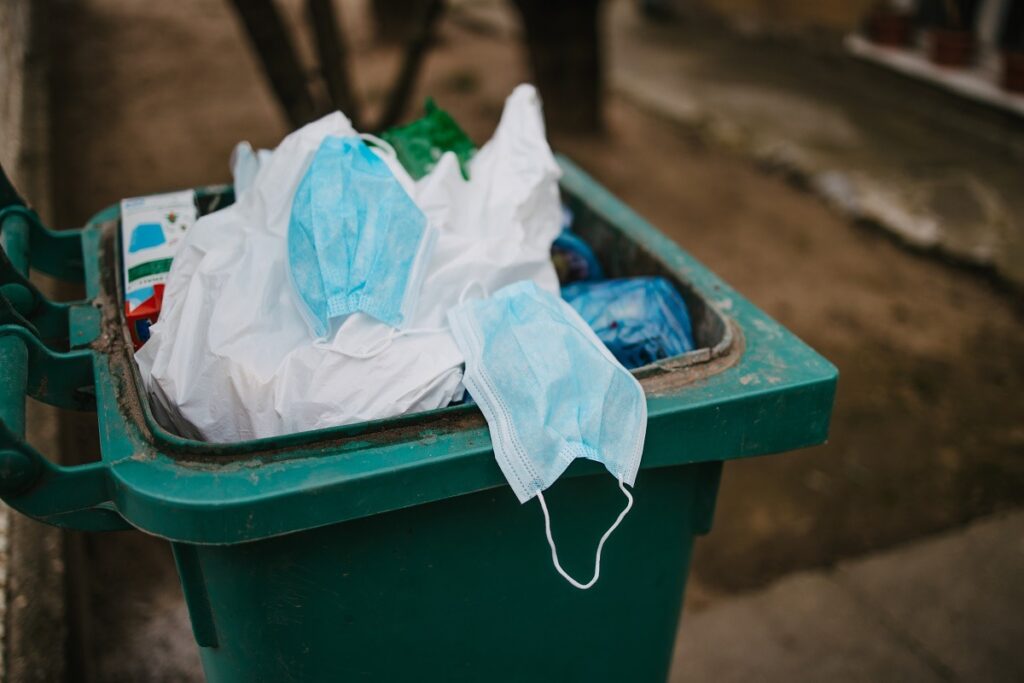CALL NOW FOR A FREE QUOTE 866.760.8194
How Recycling and Waste Management Are Adapting to COVID-19 Circumstances
When you think about the impacts the COVID-19 crisis has had on different types of businesses and organizations, one that is not thought about much is the recycling and waste management industry. Most people are surprised to learn that even in this industry changes are occurring in response to the pandemic and adapting current and future practices using the provided guidance on COVID-19.
Back in March when the virus began to spread across the country and businesses closed, recycling, waste, and trash pickups continued on schedule. These workers were considered essential just like doctors, nurses, EMTs, police, fire, etc.
They had a job to do—to help ensure that waste was picked up and disposed of properly to help maintain a level of sanitization in our communities across the country. With the evolving information about the coronavirus, waste management operations have made several changes to help protect their essential frontline workers, as well as changes to their operations, including:
1. Workers sorting recyclables and waste are wearing facemasks and face shields, along with existing PPE requirements. Trash haulers also started wearing PPE when making residential and commercial pickups.

2. Curbside pickup for residential homes has increased with more people staying home. This has created a demand for more waste containers and recycling containers, as people are generating more waste. Some waste haulers have even added twice-a-week residential pickup in certain communities.
3. Waste haulers saw a huge drop in commercial waste pickups during the shutdown. With businesses closed, there was no need for trash service for these businesses. Essential businesses, like grocery stores, restaurants, convenience stores, hospitals, etc., were the only commercial operations requiring regular waste-hauling services.
4. Waste haulers are exploring new “automated” equipment options for contactless trash pickup. Waste haulers have already been using automated lifting equipment on trash trucks for commercial pickups for years. Now they are looking at adding smaller versions of the lifting equipment to trucks to pick up residential trash.
5. Paper and plastic use has grown due to the pandemic. Waste haulers have seen an increase in the number of paper and plastic products being disposed of. This is because many places had to alter their safety and sanitization processes to keep workers, guests, vendors, and customers safe. The use of disposable facemasks and gloves grew significantly, which meant that the volume of these items ending up in the trash also increased.
6. Waste haulers saw an increase in the demand for medical and hazardous waste hauling. With people getting sick with the virus and more businesses and people using face masks and disposable gloves, the sheer volume of medical and hazardous waste has grown significantly since March.

7. Many employees in waste management now work remotely. To promote social distancing and keep their employees safe, waste management operations transitioned workers from “in-office” to work-at-home.
8. As businesses are starting to reopen, the demand for waste hauling will still not be as frequent pre-COVID-19. This change is because there are many places where people are still not yet comfortable venturing out into public to shop. Waste-hauling operations will need to adjust their pickup schedules to fit with the demand of each of their market segments.
As we continue to deal with the COVID-19 pandemic and its ever-evolving status, so, too, will the recycling and waste management industry.
For help with controlling waste management costs in the education, marine, retail, hospitality, manufacturing, fast food, restaurant, medical, and other industries and market segments, please feel free to contact Global Trash Solutions at 866-760-8194 to speak with one of our waste management consultants today!
We offer a free waste audit to help uncover different areas where you could save money!
Recent Post
Is Hiring a Waste Consultant Right for Your Business?
Managing waste and recycling needs poses a distinct hurdle for businesses focused on…
Read More >Understanding Scope 3 Emissions
Scope 3 emissions are an important component of a company’s total greenhouse gas…
Read More >